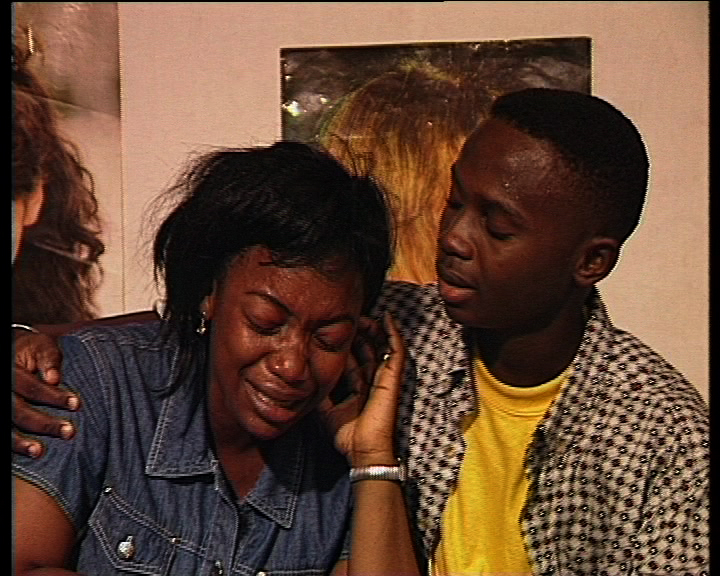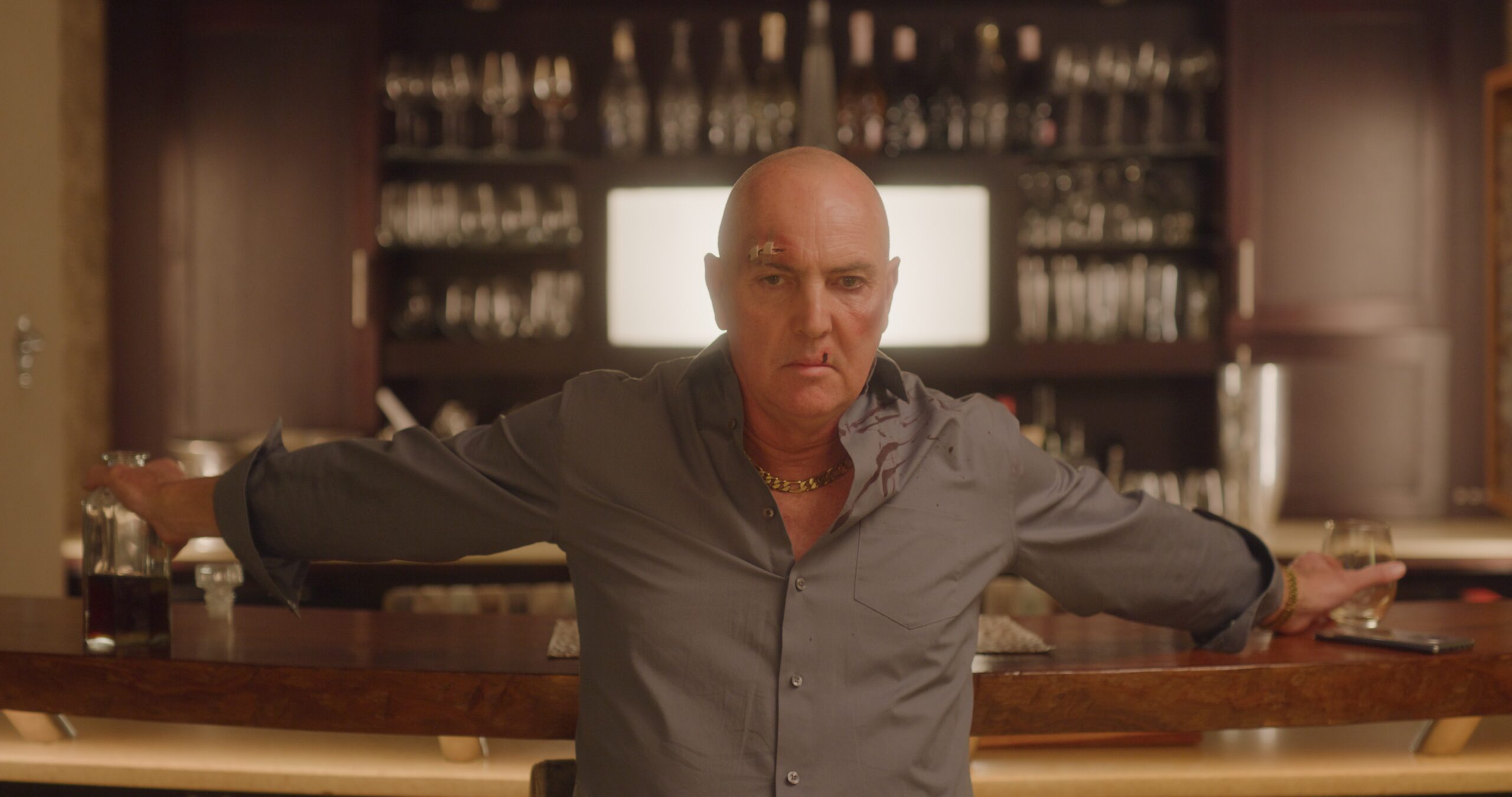In this series, we review old movies and analyse their quality and timeliness.
By 1996, Tade Ogidan was already reeling in the success of his hit film, Owo Blow: The Genesis. It is an important movie amongst the few great Nollywood films that properly explore the peculiar struggles of the Nigerian middle class. This preoccupation with peculiar class sensibilities would later be explored over the years in his solid filmography. He would go on to stake his place as a legendary Nigerian film director across his filmography, but that hadn’t happened then. As at 1995, he had worked for NTA, and made Owo Blow. Two years later, he would have made Out of Bounds (1997). But neither cut across all class and Nigeria’s cultural complexities as his 1998 movie, Diamond Ring. Not only did it continue Tade Ogidan’s streak of impressive artistic works—he wrote, produced, and directed Diamond Ring—it also put him on the path of legend he now commands with an elderly suave.
Related:

Diamond Ring, like Tade Ogidan’s preceding film, Owo Blow, presents itself as a material of social criticism and an offerer of a solution to its topic problem. It is an old value of film; the ability to mirror a societal problem and proffer solution within the same material. Diamond Ring is an ancestor to a number of films critiquing cultism and parental negligence. Another notable film that plies Diamond Ring’s route would be the Saheed-Balogun-starred Omo Alhaja. Tade Ogidan recognized the function of film as a social reflector early and it was a path he has remained till date—we will not speak of Gold Statue as a Tade Ogidan film, please. Diamond Ring, unlike Owo Blow, tried to transcend a specific tribe, it wanted to speak to all tribes.
Broken into two parts, Diamond Ring follows the story of Chidi (Teju Babyface), the teenage son of Chief Dike (Richard Mofe-Damijo) and Mrs. Ijeoma Dike (Sola Sobowale). The family is privileged, the mother plies international markets and the father has a thriving political career. The son is a brilliant, jovial kid who has recently been given an admission into the prestigious University of Lagos. Upon arriving on-campus, Dike promptly finds himself amongst the wrong crowd and, under extenuating circumstances, is initiated into a notorious cult. For his test of courage as a part of the initiation process, he is to raid the tomb of a recently buried elite, pressured by the cult members, Dike grudgingly agrees. They remove her diamond ring, amongst other effects, and subsequently sell it to a white man. The consequences prove deadly, and it is in presenting these consequences, in media res, that the movie opens.
A clairvoyant family member (Bukky Ajayi) visits as Dike suffers great pain. She tells the parents that the boy has done something horrible which he must divulge or die. The ghost (Liz Benson) visits the family once Dike confesses and demands her ring before she can restore Dike’s health. The remainder of the film becomes a race against time to save Dike’s life and complete all the tasks demanded by the ghost. But at the root of the ghost’s chastisement, and the film’s crux, is a frown upon parental negligence. Superimposed on the final scene is the legend: “Make a conscious effort to know your child today, so you don’t get the rude shock of knowing him as a total stranger tomorrow.” Tade Ogidan made the film for one purpose, and that was it, clear and explicit as the morning sun.
Other Retro Reviews:

The greatest strength of the film is the sustained thrill of completing the ghost’s tasks and the suspense of whether the tasks will be completed in time. That is to say, the finest attribute of the film is its storytelling. This doesn’t mean the other aspects suffer greatly, but when placed against the test of time, the story itself is the only aspect that stands confidently. There is sufficient acting between Richard Mofe-Damijo and the late Bukky Ajayi to make up for the atrocity the amateur actors who played the white men presented. But this was 1998, having white men in your film, shooting scenes of the film abroad, was still novelty. Sola Sobowale finds herself crying in more than half the scenes she appears in, a sustained, continuous wailing like a bush baby’s. But perhaps, this is understandable, forgivable even, because she was reflecting the social expectation of a mother in that situation. And this feels quite apt when one considers Tade Ogidan’s self-imposed role as a social commentator.
We segue into Diamond Ring’s attempt at seamless editing. There are numerous fade outs but there is a feel to the film’s transitioning as a whole, particularly the closing scenes of the second part, that, in spite of the urgency of the situation, feels calm yet frantic. Perhaps it is what happens within the scenes that creates this feel and not how we arrive into the scenes, but the editing predates the monotonous fade in/fade out transitioning of subsequent Nollywood films. It is left to the imagination how novel it must have felt at the time of the film’s release, when editing complemented film content.

Diamond Ring has acting problems. Teju Babyface’s performance, although commendable, isn’t consistent. Liz Benson flares her nose and screams her grievances, but after the third appearance, her mien becomes predictable; the same applies to Sola Sobowale, who presents a completely different personality in Ogoji Ojo and, in fact, a good number of movies she was later famous for. Some of the actors struggle with the English accent, and the English actors in the movie themselves are a blight to the regal, longstanding acting tradition of the English. Funsho Adeolu, Bimbo Akintola, and a number of the young actors in the film are now excellent actors and one can see the growth of their acting prowess in Diamond Ring. While there are good acts in the movie, one cannot but feel that the movie thrives in spite of the acting.

But we cannot end matters about the film on this note. Expectantly, it takes the moralistic role to the narrative, and the film bends towards upholding the “everything good will come” narrative. I suspect it would have been a better movie if it wasn’t broken into two parts and some scenes were done away with entirely and some other scenes, reduced in length. In principle, Dike, the protagonist, should have simply died, especially because of the troubles he put his family through; the moral of the story would have resonated more urgently if that had happened. And ghosts, really, even if we don’t know any, shouldn’t be that interested in making so many moral points:
- Get me my ring because it has sentimental value.
- Get me my coffin because it has sentimental value.
- Get me my adopted children because I want to teach them a lesson.
- Get me my ring or I will teach you a bitter lesson.
- Get me my coffin or I will teach you a bitter lesson.
- Now that you have gotten me all I need, I must part with a general lesson to parents at home.
It gets purely exhausting. In the real world, that boy would be dead from the moment they removed that ring if it meant so much to the ghost. Bukky Ajayi’s character was purely present as a Deux ex machina. From clairvoyance to outright telepathy, she might as well have been a witch or ghost herself.
Diamond Ring is one of the oldest Tade Ogidan films but not the best. He would go on to produce Dangerous Twins in 2004 and Madam Dearest in 2005, both excellent films, far better than Diamond Ring; both, too, uphold his perpetual concern for the Nigerian struggle and, extensively, the human conundrum.
Retro Rating: 6.3/10
You can share your thoughts in the comments section or on our social media accounts.
Subscribe to email notifications here:




I’m sometimes watch Nigerian Movies of all I’m interested to of watching all of the scenes in what’s happening in all it.
I’m just searching the old Nigerian movie called the diamond ring it’s about the man who attempt to lost the ring and he wants to received it back.